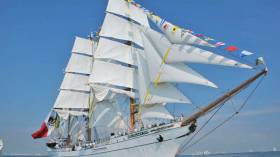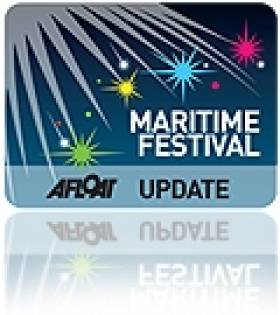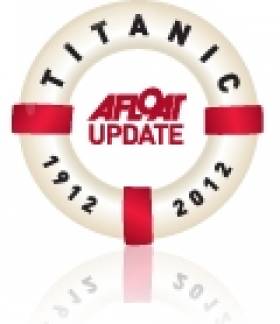Displaying items by tag: Belfast Titanic Maritime Festival
Mexican tall ship Cuauhtémoc is the star attraction at the Belfast Titanic Maritime Festival which continues till tomorrow, Monday 27 May.
The sail training ship is among the host of vessels — including Naval Service OPV LÉ Samuel Beckett — docked in the city’s harbour this weekend.
Belfast Live has all you need to know for how to get there and what to do among the wide array of activities, which this year spread across the Lagan from Queen’s Quay and the Titanic Quarter to Donegall Quay and the historic Sailortown district.
That maritime history is also the subject of a new exhibition charting a pioneering ID card system introduced for merchant seamen during the First World War.
Some 60 Sailortown locals have been identified among the cards that were discovered by David Snook while researching his own grandfather’s history, as BBC News reports.
The exhibition is currently on display at St Joseph's Church on Prince’s Dock Street.
Free Sailing at Belfast Titanic Maritime Festival
#FreeSailing - Ocean Youth Trust Ireland - funded by Belfast City Council are offering 'free' sailing and only as part of the Belfast Maritime Festival held over the Bank Holiday weekend (25-27 May).
The sailing is available only on the Sunday 26th and Monday 27th. Sail alongside the Tall Ships under the shadow of the Titanic Building. Suitable for 12 years upwards - to book - Call 0751 852 6109 or E: [email protected]
Belfast Titanic Maritime Festival
#MaritimeFestival –The Belfast Titanic Maritime Festival will be held this Bank holiday weekend (25-27 May) and will be a family fun event centred around the harbour at Abercorn Basin and Titanic Belfast Plaza.
The three-day event organised by Belfast City Council will include opportunities to climb on board tall ships, watch swashbuckling pirate re-enactments on the River Lagan, take in a Titanic-themed talk or tour.
Test your skills at laser quest and enjoy free family entertainment and street theatre along the quayside, including arts and crafts, face painting, balloon modelling and caricature drawings.
You'll also see the newly restored SS Nomadic, the boat that transported first-class passengers to RMS Titanic. Public tours of the SS Nomadic begin 1 June, 10am- 6pm; for booking details visit: www.nomadicbelfast.com
For further details about the festival click HERE.































































